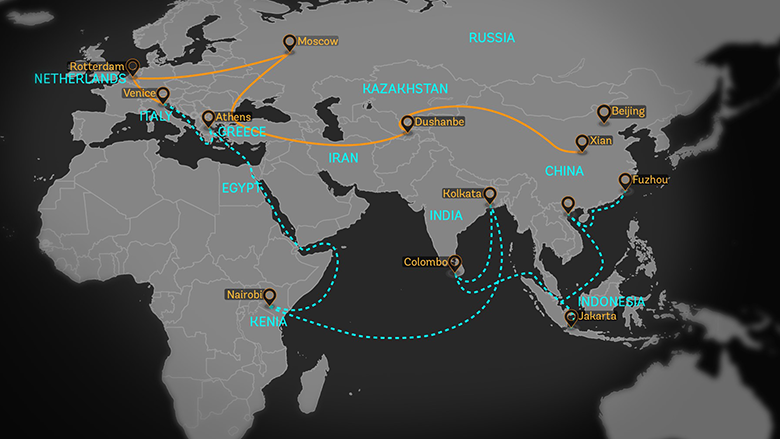Over the last decade, China has outgunned Western powers in cementing its ties with the continent, and now it is winning the COVID-19 vaccine diplomacy war.
Vaccine diplomacy is a relatively new term that has entered our lexicon primarily due to the pandemic that began in Wuhan, China. It employs vaccine delivery and distribution to advance global health by eliminating and curbing the spread of diseases.
China’s motivation for engaging in vaccine diplomacy is twofold. First, it wants to banish the negative reputation of being the origin of a disease that has killed millions and severed the global economy. The second reason is borne out of the necessity of strengthening power in the continent, a continuation of its massive Belt and Road Initiative.
While China lacks the scientific knowledge and research arm of the West, it has been able to control the pandemic within its borders, and its form of authoritarian rule is appealing to a continent rife with repressive regimes.
Despite criticisms of its policy, China has capitalized on the failure by global powers to supply vaccines to the countries that need them but cannot afford them. The waggishly arranged COVAX initiative that was supposed to develop and distribute vaccines equitably across the world has failed to meet its initiative. Western governments have also taken to distribute vaccines directly to their allies in Africa, possibly as a way of countering China’s moves.
According to a newly released report by the Economist Intelligence Unit, China has taken advantage of vaccine distribution, in which 77% of Covid-19 vaccines are used as diplomatic tools.
On the world stage, 50% of vaccines are produced in and by China.
“Recipient governments are genuinely grateful to receive vaccines. It’s a new form of soft power with China betting on resentment globally against Western countries and filling the gaps in places where western influence is declining. China is not doing this for free. It will cement long-term ties with recipient countries,” EIU’s industry operations director, Ana Nicholls, said during a webinar on Tuesday:
She added that “vaccines have become an ideal diplomatic tool because they are tangible, crucial for a population and a matter of life or death”. Chinese vaccines Sinopharm and Sinovac have made their way into 46 African countries, and in some, they are the predominantly used jabs.
China’s vaccine distribution isn’t about building ties with the people, it is geared towards helping the world’s second-largest economy achieve its economic goals. Of the 72 beneficiary countries chosen by China, 70 are partners in China’s Belt and Road Initiative.

Notwithstanding these successes, China aims to plow ahead with its vaccine diplomacy in the continent. At the recently concluded Forum on China-Africa Cooperation in Dakar, Senegal, Foreign Minister Wang Yi boasted that the 1 billion vaccine aid pledged by President Xi was the largest vaccine aid package for Africa by a single country since the outbreak of the pandemic.
He added that this great endeavor in global anti-epidemic cooperation is poised to inject strong impetus into bridging the vaccine inequality gap in Africa.
Despite the bravado, China’s dominance in vaccine diplomacy is now under serious threat from the United States. President Joe Biden wants to recalibrate ties with the continent as it seeks to topple China’s growing influence and “debt-trap diplomacy.”
In May, the Biden administration announced it would distribute 80 million jabs globally. Biden. However, this amount appears too small when compared with China’s export of over 668 million does; although only 2.4% of those were donations.
In addition, Washington directed its development finance institution, the International Development Finance Corporation, to lend $119 million to South African pharmaceutical firm Aspen Pharmacare to manufacture the single-dose Johnson & Johnson’s COVID-19 vaccine in Africa.
During his maiden trip to the continent, Secretary of State Antony Blinken visited the Institute Pasteur in Senegal, where he promised support to help Africans make their vaccines.
The vaccine diplomacy war is heating, and one thing is certain – African countries stand to benefit the most from the increased distribution of vaccines by competing global powers.

